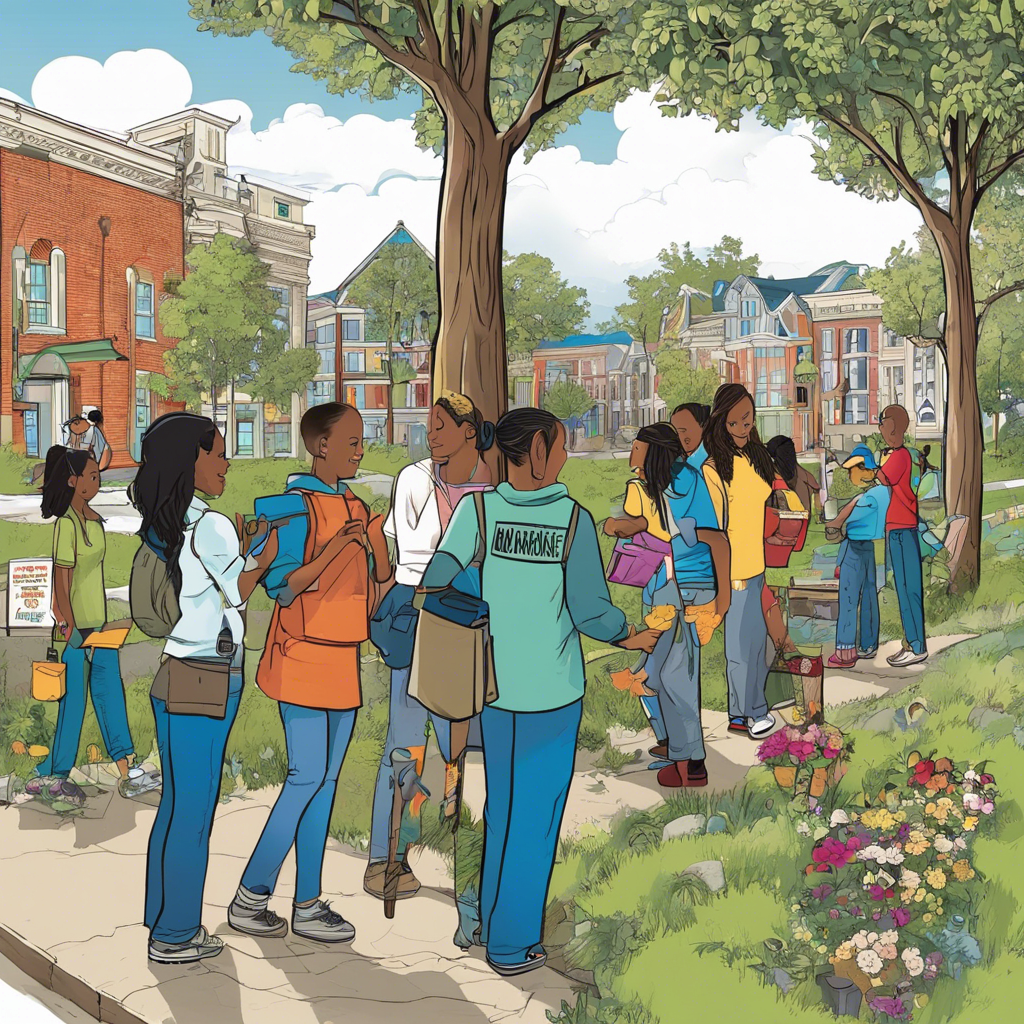Service learning enhances civic engagement through experiential education, empowering students, and fostering community connections.
In an era where fostering a sense of civic responsibility and active citizenship is more crucial than ever, the concept of **service learning** has emerged as a powerful educational approach. This innovative method goes beyond traditional classroom teaching by integrating hands-on community service with academic instruction, allowing students to apply their knowledge and skills to real-world issues. By actively engaging in community projects, students not only enhance their understanding of societal challenges but also develop a deep sense of civic engagement that can shape their future actions as responsible citizens. This article delves into the multifaceted role of service learning in promoting civic engagement and how it equips students to make a positive impact on their communities.
Understanding Service Learning
Service learning is a pedagogical approach that combines community service with structured learning, where students participate in organized service activities that address local needs while simultaneously reflecting on their experiences through academic coursework.
Key Components
The essence of service learning lies in three fundamental components:
Community Service
Students engage in service projects that benefit the community, such as tutoring programs, environmental initiatives, or advocacy campaigns, providing a practical platform to apply academic concepts.
Academic Learning
Service activities are connected to academic courses, encouraging students to analyze and reflect on their experiences through research, writing, and discussions, thereby deepening their understanding of societal issues.
Reflection
This vital process involves students critically examining their service experiences in relation to course content, fostering a more profound comprehension of both theoretical and practical aspects of community engagement.
Service Learning and Civic Engagement
Service learning plays a pivotal role in promoting civic engagement by fostering a sense of community, encouraging active citizenship, and providing students with the skills and knowledge to effect positive change.
Building a Sense of Community
Through service learning, students become active participants in their communities, developing a stronger connection to their local environment and its inhabitants. This connection fosters a sense of belonging and encourages students to contribute to the well-being of their community, thereby enhancing civic engagement.
Encouraging Active Citizenship
By engaging in community service, students learn that they can make a tangible difference in people’s lives. This realization motivates them to become active citizens, advocating for social justice, environmental sustainability, or other causes that resonate with them, as seen in the inspiring work of the Community Service Learning Center at UC Berkeley. [1]
Skills for Civic Engagement
Service learning equips students with essential skills for civic engagement, including critical thinking, problem-solving, collaboration, and communication. These skills enable students to effectively participate in community initiatives, contribute to public discourse, and engage in democratic processes, as advocated by the National Service Learning Clearinghouse. [2]
Examples of Service Learning Projects
–
Environmental Conservation
Students might organize a cleanup campaign at a local park, study the ecological impact of pollution, and advocate for sustainable waste management practices.
–
Literacy Programs
Participants could volunteer at local schools or community centers to tutor struggling readers, while also researching and implementing effective literacy strategies.
–
Advocacy Campaigns
Students could engage in campaigns against homelessness, raising awareness, collecting donations, and advocating for policy changes to address the issue.
Benefits of Service Learning
For Students
–
Enhanced Learning
Service learning provides a hands-on approach to learning, leading to better comprehension and retention of academic content.
–
Personal Growth
Students develop essential skills like leadership, teamwork, and communication, boosting their confidence and self-esteem.
–
Career Exploration
Through service learning, students can explore career paths while contributing to society, as highlighted in a study by the University of Minnesota. [3]
For Communities
–
Community Development
Service learning projects often address local needs, contributing to community development and enhancing social capital.
–
Increased Civic Engagement
Engaging students in community service fosters a culture of active citizenship and volunteerism, leading to a more engaged and empowered community.
Questions and Answers
How does service learning differ from traditional volunteering?
Service learning differs from traditional volunteering in its integration of community service with academic learning. It involves structured reflection and a focus on both personal and community growth, rather than solely completing tasks.
Can service learning be implemented in all academic disciplines?
Yes, service learning can be adapted to various academic disciplines. It has been successfully applied in fields like education, social sciences, environmental studies, and health sciences, demonstrating its versatility and adaptability.
What are the potential challenges of implementing service learning programs?
Implementing service learning programs may face challenges such as finding suitable community partners, aligning academic content with service activities, and managing student expectations and experiences, requiring careful planning and coordination.
Conclusion
Service learning is a transformative educational approach that fosters civic engagement through hands-on community service, academic learning, and critical reflection. By engaging students in meaningful community projects, service learning develops a sense of responsibility, enhances critical thinking, and empowers students to become active citizens. Its impact extends beyond the classroom, contributing to community development and social change. As students apply their skills and knowledge to real-world challenges, they not only enrich their academic experience but also become catalysts for positive societal transformation, embodying the essence of service learning’s power and purpose.
[1] https://csleducation.berkeley.edu/
[2] https://www.servicelearning.org/
[3] https://www.cehd.umn.edu/ssw/about/centers-and-initiatives/center-for-translational-neuroscience/research-and-innovation/service-learning/
